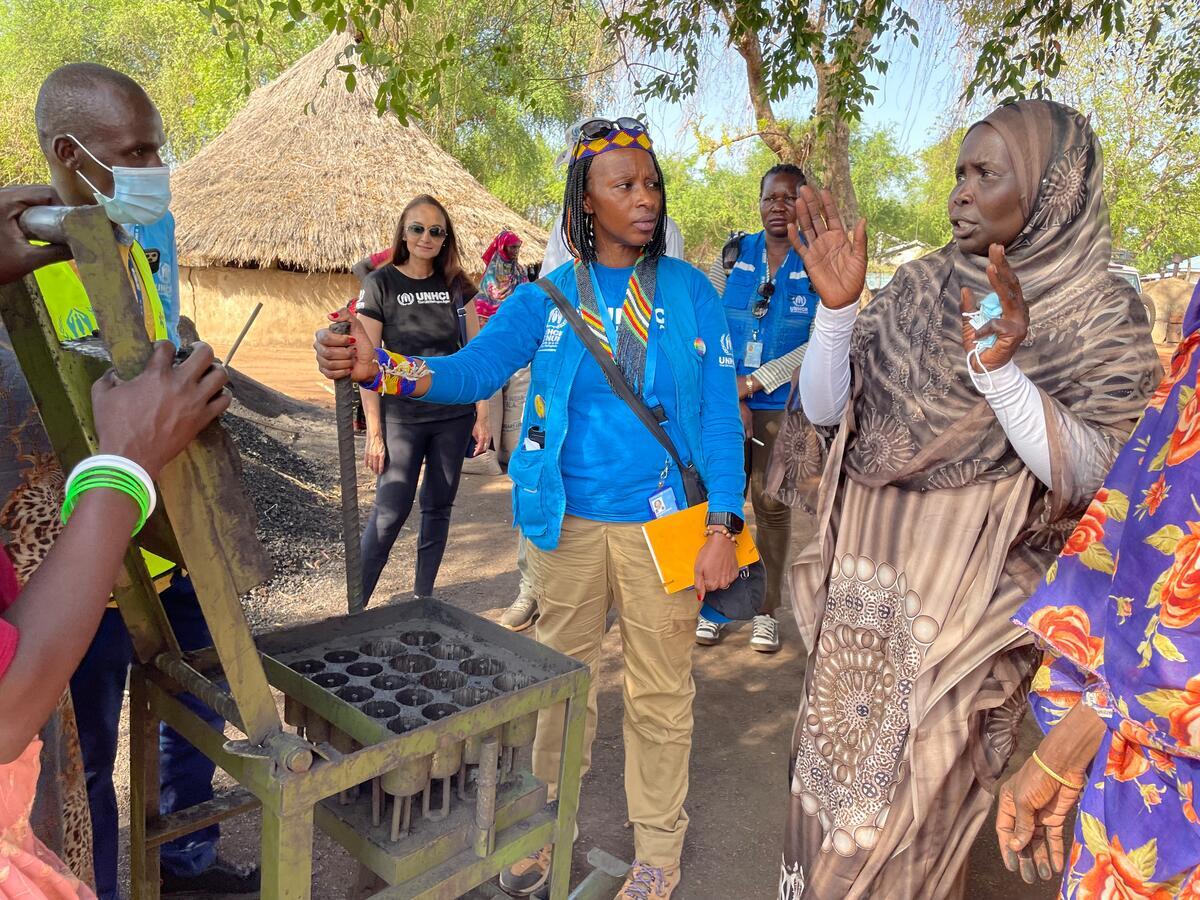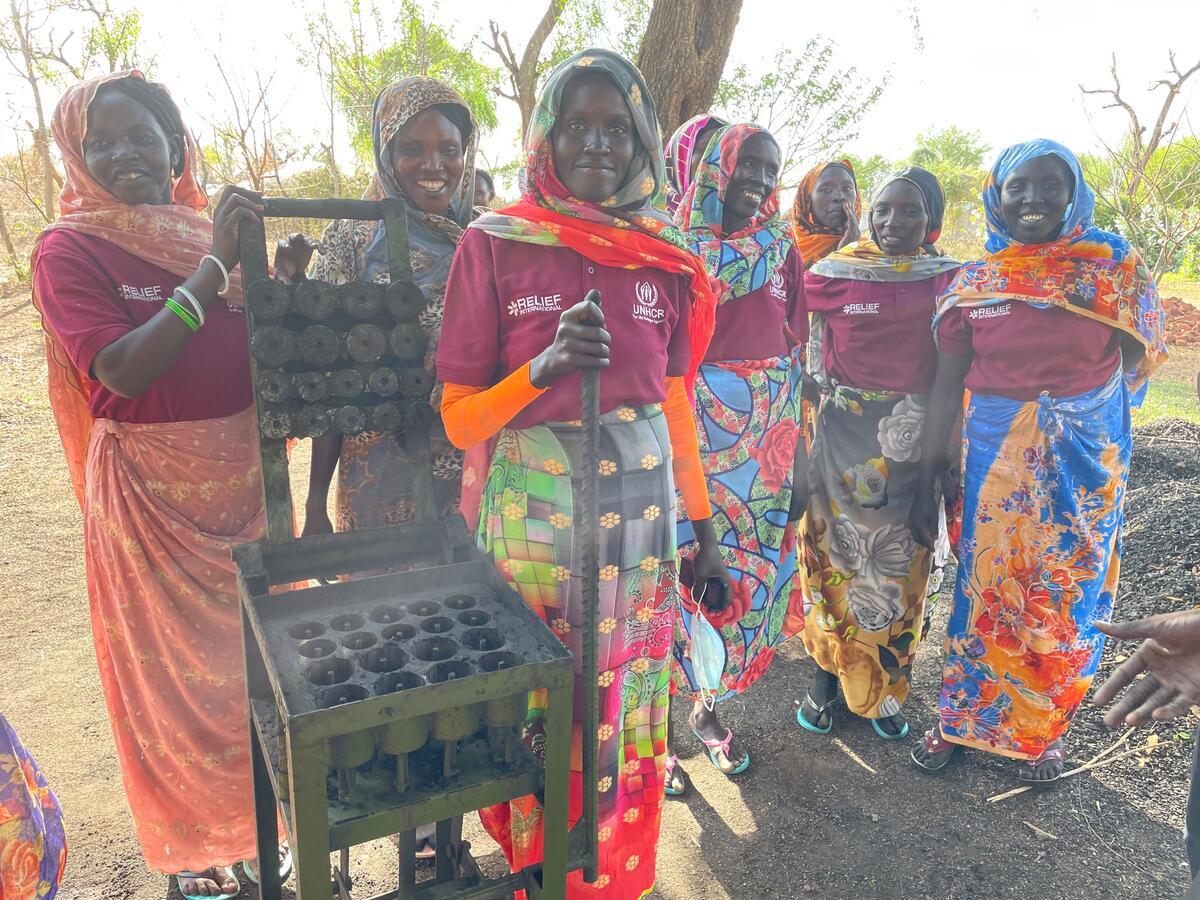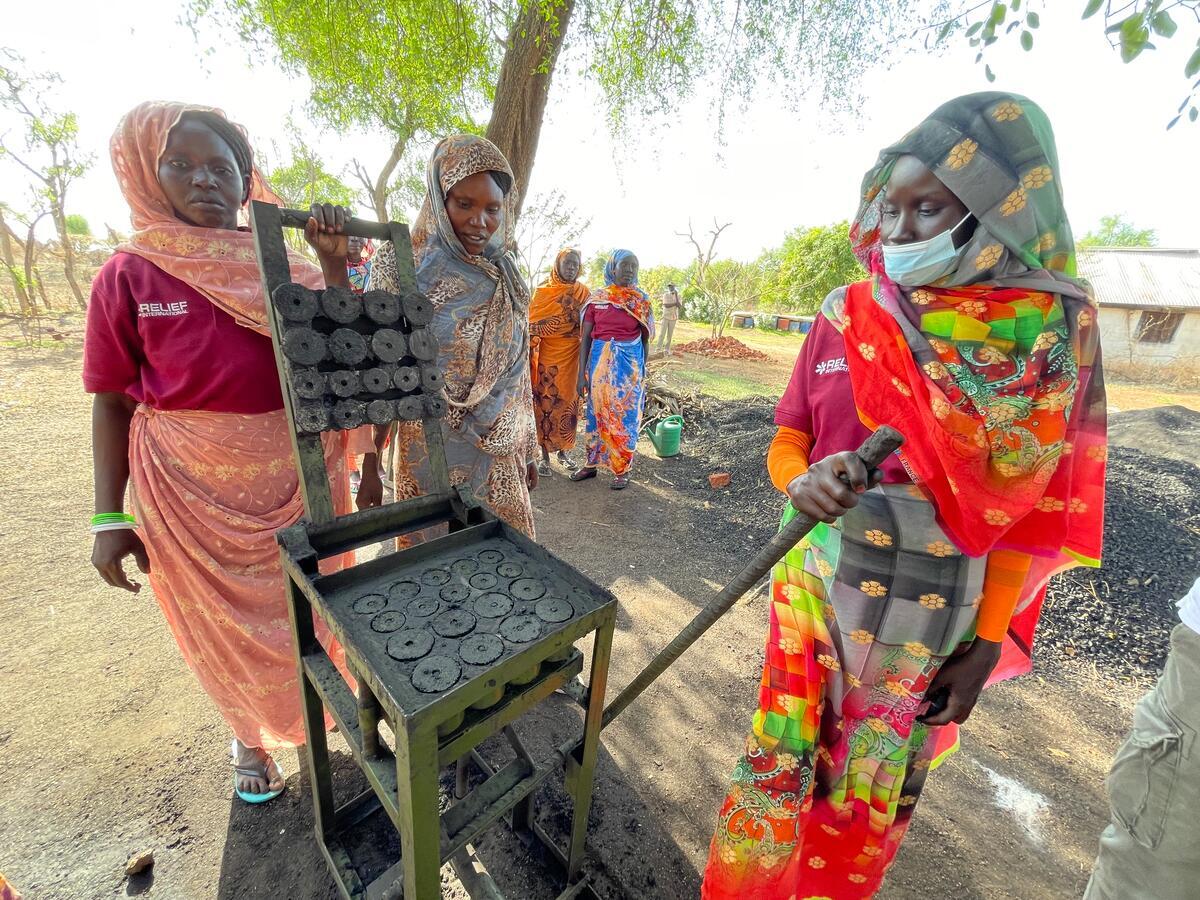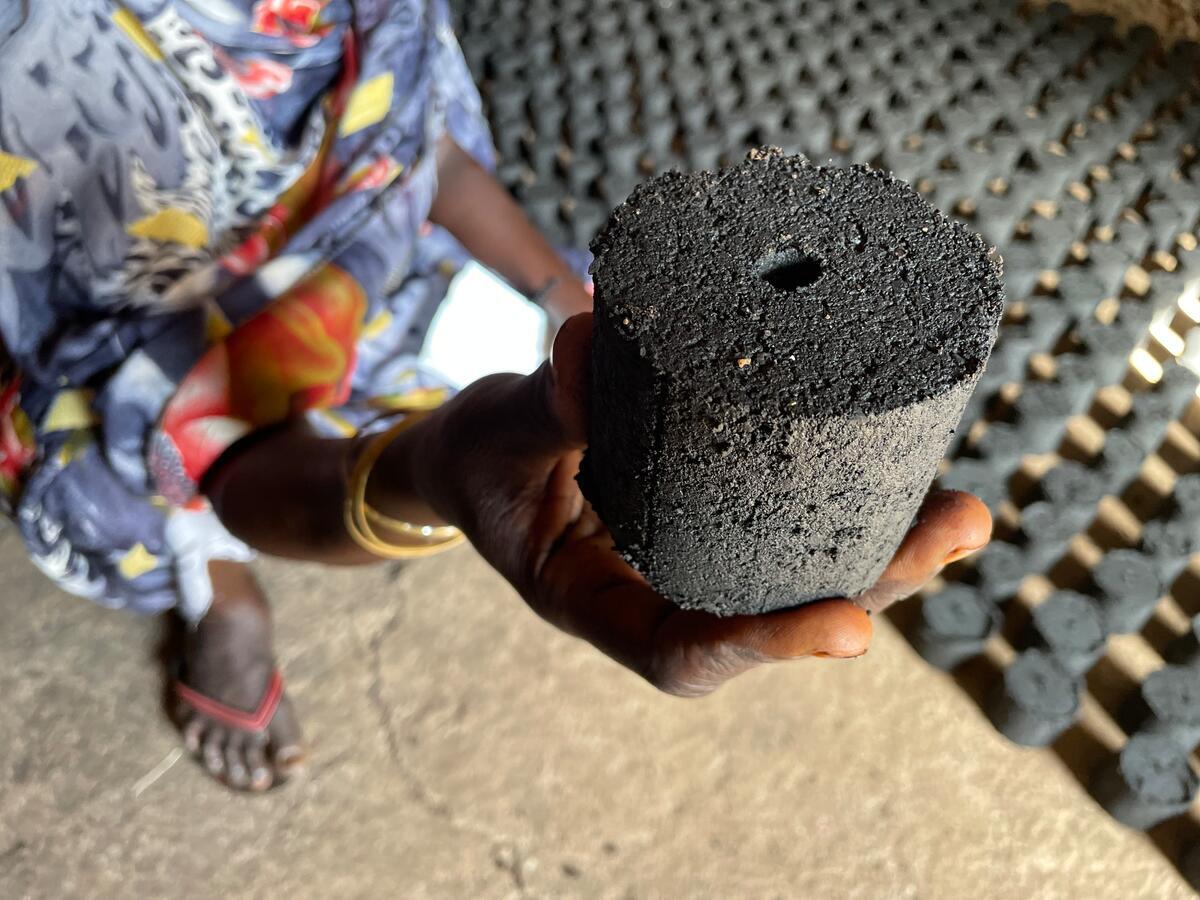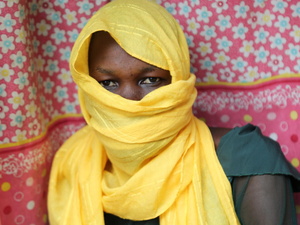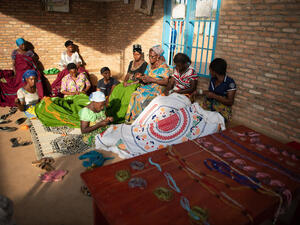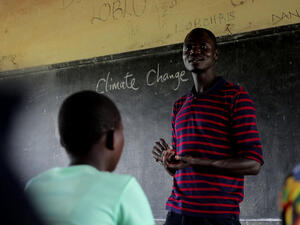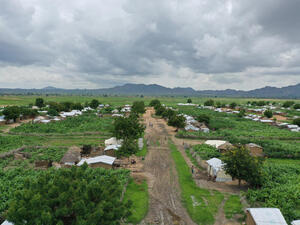Turning trash into clean fuel, refugees aid environment in South Sudan
Turning trash into clean fuel, refugees aid environment in South Sudan

Sudanese refugee, Halima Issa, inspects the briquettes she has made in Gendrassa refugee camp.
Halima Issa used to make a risky dash to the forest to cut down trees for firewood, which then filled her shelter with billowing smoke every time she cooked – but not anymore.
The refugee from Sudan is now among 64 women in north-east South Sudan who are making clean, alternative fuel briquettes from recycled agricultural waste in an innovative pilot project that also provides them with an income.
“Now I don’t have to cut down trees anymore, and my house isn’t filled with smoke,” says Halima, noting that the programme also provides her with a small but vital income. Intrigued by the benefits of briquettes, she started producing them at home and now shows her neighbors how to make them.
The pilot project began in February 2022 in a collaboration between UNHCR, the UN Refugee Agency, and Relief International, who together launched a briquette production and marketing project for both women refugees and their hosts in Maban county, to give them a clean and sustainable alternative fuel source to firewood. Owing to limited funding, project participants were only selected from two of the four refugee camps in Maban: Doro and Gendrassa.
“Now I don’t have to cut down trees anymore, and my house isn’t filled with smoke.”
The teams gather dried biomass waste including charcoal dust, dried leaves, grass, shrubs, lalop seeds and agricultural trash, such as sorghum and maize stalks, from around the two camps. After being given training, they are provided with briquette making machines that crush, mix, press and extrude a mixture, which is dried into rock-hard combustible briquettes under shade.
They then sell the briquettes at US$1 per kilogramme, making it an income-generating activity in addition to acquiring new greener skills. In March alone, the Gendrassa based group produced over 2,000 kilogrammes and earned up to US$2,000 from the sale of the briquettes.
Just 200 households have so far been targeted to receive briquettes monthly out of the 35,036 households across Maban’s four refugee camps as of 30 April 2022, leaving plenty of room for growth that could also bring other benefits.
“If this project can be scaled up so that many women can be trained and empowered to make briquettes at their homes, it would save us from the risk of harm when walking long distances in search of firewood in the forests,” said Manal Abdalgadir, who is chair of the Gendrassa group.
Juliette Murekeyisoni, UNHCR’s Deputy Representative in South Sudan, notes, “The intervention aims to improve access to sustainable energy for refugees and host communities and contribute to environmental conservation as it reduces direct reliance on firewood as a primary source of energy. It also facilitates access to green jobs and decent employment for regular income for refugee women.”
The briquettes are sustainable because they are locally produced from available waste material and have a lower negative impact on the environment than commonly used cooking fuel such as firewood and charcoal.
Furthermore, they are produced by slow heating in a controlled environment which reduces greenhouse gas emissions.
Manal adds, “The briquettes can burn for up to eight hours so only six pieces are enough to prepare all three meals in a day. Also, briquettes do not emit smoke when lit, which makes it convenient. This project has created employment opportunities for us as women by providing skills training and machines that we are using in production. We also use the ash after cooking in our kitchen gardens.”
UNHCR is committed to reducing the environmental footprint of its operations, while at the same time helping refugees to achieve a sustainable way of living. Among other projects are a push to turn weeds into fuel in Ethiopia, and a solar cooperative also in the Horn of Africa country that benefits refugees and their hosts.


